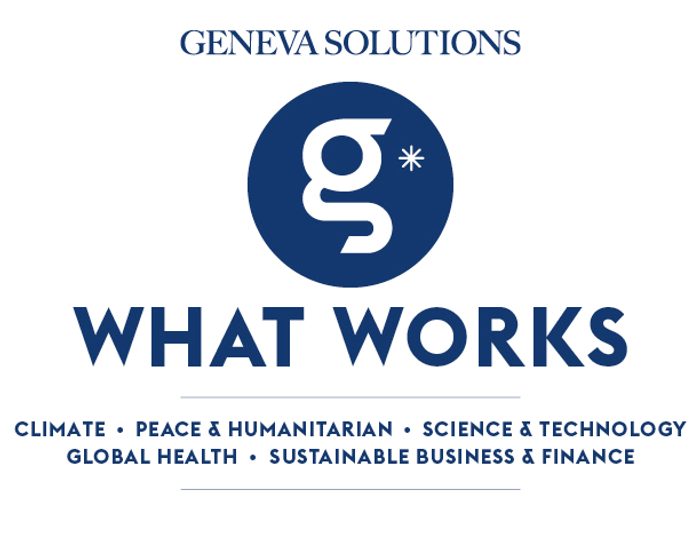Hello, this is Michelle. For our story in our series about finding love in the humanitarian field, we travel to Peru, where we hear from two incredibly driven women about the challenges queer couples face when choosing the international line of work.
On World Humanitarian Day, in a piece published on the third anniversary of the Taliban takeover of Kabul, aid workers describe the compounding crisis in Afghanistan.
And in our series on Genevan historic thinkers and artificial intelligence, Jovan Kurbalija, director of the DiploFoundation, tells us how linguist Ferdinand de Saussure and philosopher and writer Jean-Jacques Rousseau may have, respectively, contributed to the technology and could help us deal with with its inherent challenges. |

|

(Design by Geneva Solutions)
|
|
Humanitarian, queer and in love.
Lorena and Sofía have strikingly different personalities. Lorena is obsessed with reggaeton star Bad Bunny and Brazilian tunes. Sofía is more of a rock music kind of person but can easily listen to just about anything. Lorena is outgoing and loud – Sofía is cautious and collected. Lorena is in her late 20s and Colombian, while Sofía is in her early 30s and comes from a small Central American country. Yet, they share an experience few in their field can relate to. Being a lesbian couple and working for the UN comes with both privileges and challenges.
Love in the field: Chapter 3
|
|

(Design by Geneva Solutions)
|
|
Jean-Jacques Rousseau’s social contract for the tech world.
In the rapidly evolving landscape of artificial intelligence, Jean-Jacques Rousseau’s philosophical insights offer a profound lens for examining the ethical, social and political implications of this transformative technology.
Rousseau, a towering figure of the Enlightenment, grappled with the tensions between nature and society, individual freedom and collective authority, and the moral consequences of technological progress. These themes resonate deeply in our current era, where AI's potential to reshape society raises critical questions about autonomy, justice and the nature of the human community.
Geneva past thinkers' guide to the AI era: Chapter 4
|

(Design by Geneva Solutions)
|
|
Ferdinand de Saussure: From linguistic patterns to AI.
Linguistics is the conceptual basis of large language models and artificial intelligence. An unsuspecting contributor to its development is Ferdinand de Saussure, whose seminal work, Course in General Linguistics (1916), profoundly influenced modern linguistics and, by extension, AI. The Geneva-born linguist’s research on language patterns and the relationships between signifiers (words) and signifieds (meanings) laid the groundwork for natural language processing and other AI applications.
Geneva past thinkers' guide to the AI era: Chapter 5
|
|

Afghan women at the Médecins Sans Frontières maternity hospital in Khost, Afghanistan, where throughout the country, a shortage of female staff is a major concern, 8 December 2023. (Keystone/AFP/Kobra Akbari)
|
|
🕊️Sudan talks in Geneva: ‘We want peace’.
As uncertainty looms over ceasefire talks in Geneva, Sudanese hopes for peace linger on. While US-brokered talks get started with only one major party at the table and complex dynamics, civil society activists are nonetheless hoping for a ceasefire.
Geneva Solutions
|
|
|
GS news is a new media project covering the world of international cooperation and development. Don’t hesitate to forward our newsletter!
Have a good day!
|

|
|
Avenue du Bouchet 2
1209 Genève
Suisse
|
|
|
|










